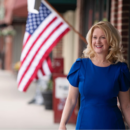ST LOUIS—Missouri lawmaker Sen. Paul Wieland won an appeal, today (7-20), in his fight against the Affordable Care Act’s mandated birth control coverage. The 8th U.S. Circuit Court of Appeals reversed the lower court’s rejection of his legal challenge, which will allow Sen. Wieland’s case, based on the Supreme Court’s decision last year in Hobby Lobby, to proceed.
“The government has no business forcing parents to pay for coverage of abortion drugs and devices that violate their religious beliefs,” said Wieland. “This decision is a win for religious liberty.”
Last year, the 8th U.S. Circuit Court of Appeals in St. Louis heard arguments by Republican State Sen. Paul Wieland of Imperial and his wife, Teresa, against the U.S. Department of Health and Human Services and two other federal agencies.
As a legislator, Sen. Wieland pays for his family’s insurance coverage through the Missouri Consolidated Health Care Plan (MCHCP), a group health care plan made available to employees of the State of Missouri. The Senator was allowed to opt out of coverage for contraceptive methods contrary to his Catholic faith prior to the implementation of the Affordable Care Act, but that choice was taken away in August of 2013.
Last year, the Wieland’s lawyer, Timothy Belz, urged the three-judge panel to reverse the U.S. District Court’s November 2013 ruling dismissing the case. He cited the Supreme Court’s decision that private companies with religious objections, such as Hobby Lobby, can opt out of the contraceptive requirement under the federal health care law and said that parents should have at least as many rights as does Hobby Lobby. The Wielands have three daughters.
The United States Supreme Court ruled in Hobby Lobby that for-profit employers can be exempt from following the HHS Mandate under the Religious Freedom Restoration Act, because their exercise of religious faith is substantially burdened when the government forces them to provide religiously objectionable insurance coverage for their employees. Today’s unanimous decision allows the Wielands to pursue their claim that their religious freedom, as individuals and as parents, should also be protected under the Religious Freedom Restoration Act.




